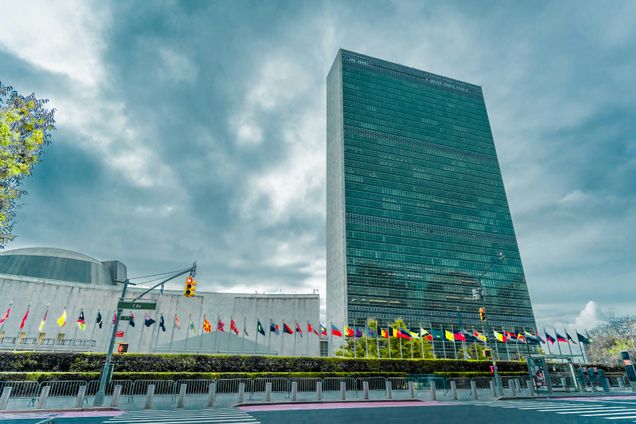Back to the Future: How the Pre-OECD Global Tax Landscape Offers Lessons for Today

At a time when developing countries need to ramp up investment to achieve development and climate goals, tax revenue is particularly urgent. A global tax system weighted towards multinational companies makes collecting this revenue more challenging. International cooperation can help correct these imbalances, but a major question is how and where these negotiations should occur: the Organization for Economic Cooperation and Development (OECD) or the United Nations (UN)?
This debate is sometimes framed as a choice between the traditional forum of the OECD or a step into new territory for the UN, but a more complete history challenges this binary. A contemporary observer might also be surprised to learn that the US, which opposed moving tax negotiations towards the UN under the Biden Administration, and now challenges the concept of international tax cooperation more broadly, with the Trump Administration disavowing the OECD’s so-called global tax deal, has a forgotten history of embracing more equitable tax policy.
A new policy brief by Steven Dean, Erin Ryu and Danna Lopez-Flores traces the history of international tax policy, showing that the OECD-dominated, multinational corporation-friendly tax policy that has taken hold is not inevitable. Examining pre-World War II history, when the US supported the reconstruction of Europe, this brief shows that a more collaborative approach is possible. In the 21st century, developed countries could learn from history to support countries in the Global South, helping them climb the development ladder.
Key findings:
- In the aftermath of World War I, the US embraced a foreign tax credit that gave expansive taxing rights to former allies and enemies alike. Multinational companies pushed for double tax treaties to limit their taxation abroad. After World War II, Global South countries negotiated to expand taxing rights at the UN.
- Global tax negotiations shifted to the OECD in the 1960s, with its more limited membership insulating multinational companies from Global South countries’ demands, and the advent of the OECD went along with a rise in double tax treaties.
- The OECD has consistently promoted a tax system that favors rich countries over poor ones and multinational corporations’ interests over those of states, limiting Global South countries’ ability to collect revenue.
Policy recommendations:
- Both developing and developed states should revisit their existing tax treaties.
- Developing states should leverage digital services taxes.
- Both developing and developed states should implement wealth taxes. Such taxes can boost revenue collection in Global South countries, even if not all countries initially join international tax agreements.
- Given the failure of the OECD’s efforts at inclusion, the UN should take the lead in setting a tax policy framework that reconciles the divergent interests of both developed and developing economies.
- The OECD, under the guidance of the UN, could then translate these priorities into a suite of actionable policy instruments. For nearly a century, the US Congressional Joint Committee on Taxation (JCT) has provided such support to legislators. The OECD could fill the same role for the UN.
The authors write that it bears emphasis that boosting global tax revenues is essential not for its own sake but because it enables states to invest in public goods like education, health care and infrastructure—foundations for genuine self-determination. For too long, the international tax system has allowed wealth to flow out of the Global South, leaving behind underfunded governments and deepening inequality.
Read the Policy Brief